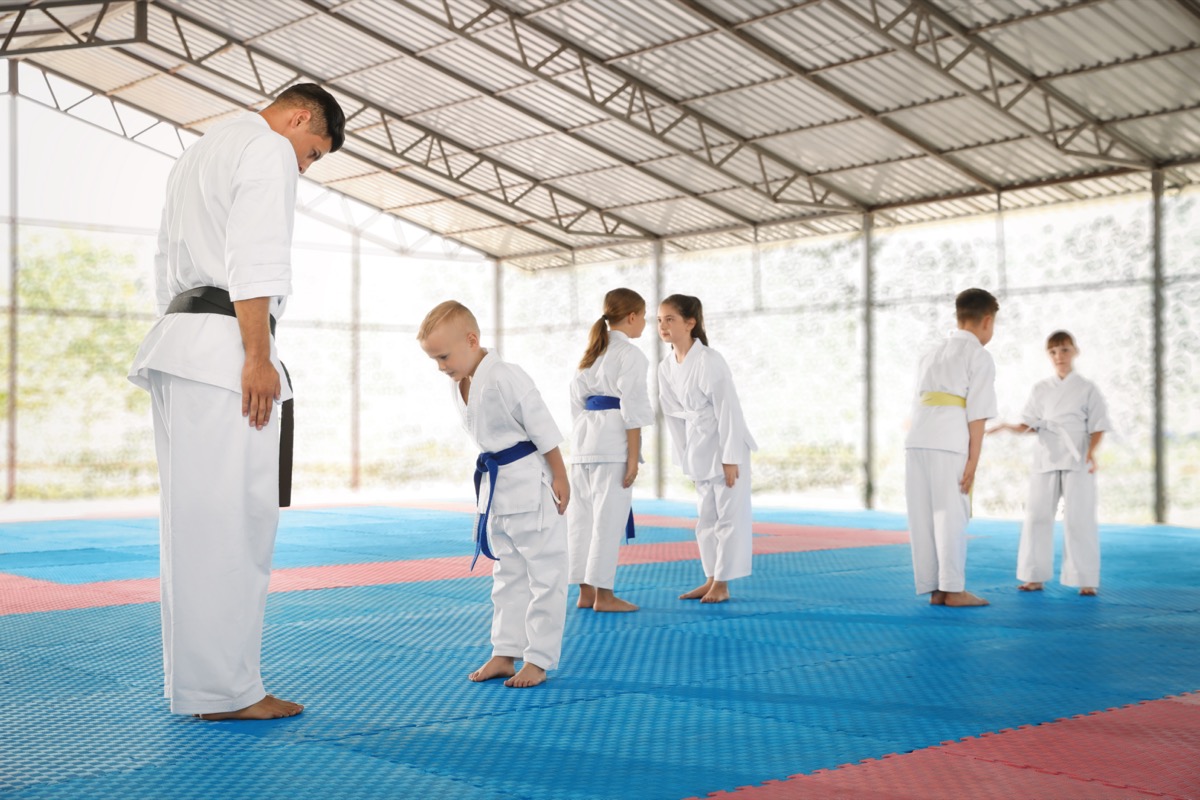Discipline in the most layman of terms is simply a regimented obedience to a person or an idea. Most often this is motivated by a desire to improve oneself in some way, to make yourself better or move toward a positive goal or result.
A person can be disciplined toward a person in authority, like in the military. A soldier is required to observe and receive and obey the discipline handed down to them from a superior officer.
Or alternatively a person might discipline themselves to adhere to themselves or their efforts toward a goal, an idea, such as eating right, avoiding bad foods and habits, and forming good ones, positive ones that help them strengthen their bodies and lose weight.
In both cases the result and methodology is the same. A person is keeping to a strict observance of obedience for the specific reason of bettering themselves, improving themselves.
But in order to fully achieve those goals, a person has to maintain an obedience to a set standard of behavior, and that often involves denying themselves some type of pleasure or leisure in the short term, for the purposes of attaining a greater pleasure or reward in the long term. Suffer now, gain later.
This can be exemplified most simply by a person who goes to the gym, dutifully, on a regular and set schedule. They don’t deviate from that, and when they’re there they keep to a regimented behavior of lifting weights and exercising even after they’re tired, or even if they don’t really want to. They have a set amount of time, say two or three hours where they are working out and taking only minimal breaks, but otherwise they devote their time and thought and effort toward working out until the time is done.
The martial arts follows this methodology as well, but with a more advanced mindset toward observing discipline and putting it forward toward a greater reward, a greater set of achievements. A person is strengthening their body, true. But they’re also strengthening their minds and their spirits as well. Indeed, they’re disciplining their entire lifestyle and perspective overall, not just in the body.
What is more, the martial arts is especially effective at teaching discipline because the instructor as well as their assistants are well suited and equipped to teach discipline to all members of a given class. You see, many martial arts schools have students of all age groups, and everyone is able to participate in the lessons the martial arts teaches. Young children begin to learn through “baby steps” if you will, and learn very basic lessons of being a good listener, the importance of behaving themselves and paying attention. Older students learn more advanced lessons of discipline that they apply to their forms, their stance, their ability to physically practice the moves they are being taught. Students who are advanced in rank learn to apply discipline to their state of mind, their overall conduct and ability to achieve goals on their own as they grow nearer to advanced martial arts, and rank. And finally they learn to apply discipline in a way that allows them to impart what they know to others and to help other students grow, even as they grow and mature as assistant instructors.
This means that regardless of a student’s age or level of maturity they are learning the lessons of discipline, and naturally the younger the better, it still provides a great deal of benefit to older students who may still be beginners to the martial arts. So there is no level nor place nor rank in the martial arts in which a student is not applying the science of discipline in some form to what they are learning.
Children learn to be obedient first off, then they learn why they should be obedient, and ultimately once they’ve acquired the knowledge of why it’s important they learn to see the value in applying and utilizing discipline for themselves outside of the school. This is teaching people the value of discipline and other lessons learned within the school why and how they can be applied to their lives as a whole. Thus teaching life skills that can and do benefit students for their entire lives, and positively impacts the lives of those they come into contact with through example.
At the end of the day we find that the martial arts teaches discipline throughout the entirety of its class, through its methodology and through its relationships between students, and instructors. In every aspect discipline can be found, because the environment is founded and built upon it.
At its most basic level it is taught through force of habit. A student simply finds that discipline is a habit they have to learn, and they engage in it regularly, routinely, until it becomes ritual, and second nature. And only through the practice of discipline can they achieve even the basic most rank and experience. Ultimately they learn that it is a tool to be utilized often in the achievement of their goals, and is to be seen as a welcome addition to their skill set as opposed to something they recoil from and look at negatively.
It reveals to students what they can truly achieve, the goals they can reach, and the challenges they can overcome when they utilize discipline, when they put forth the effort to suffer now, fo a greater reward later.
Discovering that the martial arts teaches much more than simple fighting techniques is one of the greatest open secrets of the martial arts. We say it’s an open secret because no one has actually sought to hide it, it’s simply an assumption of ignorance that people make that the martial arts is quaintly and simply focused on fighting and that’s all.
But all of this is predicated on the notion that a student will learn the value of discipline through their daily practice to achieve rank, advancement, reward, experience, and any other goal.
